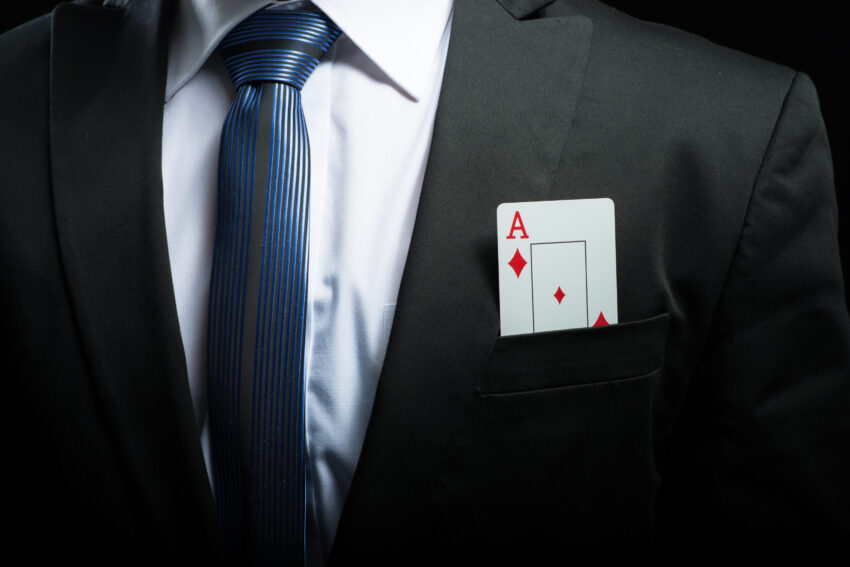Most people consider playing poker to be entertainment or a weekend pastime, but with professional poker players making a living from this game of skill, leading independent lives and securing their financial futures this is definitely not the case.
There are many parallels between playing poker and operating a business. For example: creating a successful business involves the perfect combination of chance, risk and a founder’s ability to execute against all odds—exactly the skills employed by a poker player. Small and medium-sized business owners can reap many benefits from learning and playing poker, whether at a casino or on an internet platform.
Entrepreneurs can upskill and learn a lot from poker players. Here are some ways in which poker can guide you as an entrepreneur.
Accept Uncertainty
In Poker, you have to play the game without any knowledge of what is in your opponent’s hand.
You assess the risks with each new piece of information that you get and make predictions about how the game will play out. As an entrepreneur and in business, you do the same thing every day. There is no way of ensuring that you always receive complete or accurate information. Instead, you’re continually assessing new data from the market, competitors, and customers, among other sources. As a result, you must use what you know to make judgments that maximize your chances of success. It’s occasionally necessary to pivot, and other times it’s essential to press forward. However, if you spend too much time waiting for all of the cards to fall into place, you may miss your opportunity. You have to place bets based on what you know.
The Mind Game
Poker, like business, is a mental game. It all comes down to the plays you make, the strategy you employ, and working out the strategy of your opponents. You must be mentally well prepared and you must be ready to face any challenge. Your game will not succeed unless you are in the right frame of mind.
Journey Over Destination
You can play a great hand of Poker and still lose, just as you can do everything right with your company/business and still fail to meet your objectives. However, this is a temporary setback. It’s all about mastering the fundamentals, and if you fail the first time, dust yourself off and try again.
Making informed judgments, in the long run, is what will make you a winner. Making rash decisions may get you to the top, but it will not keep you there. Logic will always triumph over chance.
You Win Some You Lose Some
Gambling is purely a game of chance where there will certainly be a lot of losers and a much smaller number of winners. You should gather as much information as possible and calculate all of the outcomes as precisely as you can. However, always be prepared for the unexpected, as an unplanned wild card could throw you off your game. Your success or failure is determined by a combination of luck, chance, and timing.
What Are the Odds?
Just like in poker, there will be many times when failure comes to call. In business, failure can happen for several reasons. Take a look at these stats.
- A lack of funding (29%),
- The wrong team (23%),
- A bad location (9%)
- Failure to pivot (7%).
Why are these significant? Well, you can learn a lot from startups. Similarly, poker also works on the correlation of several factors. While one ‘hand’ has a more significant chance of winning than another, no hand ever has zero chance of producing a win.
What distinguishes poker from the other casino games is that the house does not always win. Even though an entrepreneur may have all the odds stacked against them, if they know how to play their hand (and what innovation or value-added product they bring to market) they still stand the chance of a big win.
Traditionally, a gambler is someone who “engages in risky behaviour in the hopes of achieving the desired outcome.” Many people believe that a poker player isn’t really a gambler at all. One judge even claims that “poker is more of a skill game than a game of chance.” A careful and attentive entrepreneur, like a startup owner, knows the risks involved and uses data, intuition, and logic to make the most informed decision possible. Don’t just take chances; instead, weigh the risks.
The Winning Combo
While luck does play a role in Poker, the way that you play your hand ultimately determines your fate. The size of a win or loss in any poker game is entirely up to the player. Investors will always remark that their belief in the founder is a fundamental reason for investing in a particular company. This is the entrepreneur who assesses risk, places wagers, and makes decisions well. An idea is worthless without a strong visionary and stronger execution. The secret ingredient is the right entrepreneur. Many people claim to want to be entrepreneurs, but when they put all their cards down, do they really have what it takes? Take this advice from the American professional poker player and author, David Sklansky:
“When we play, we must realize, before anything else, that we are out to make money”.
While most people play poker for fun and only a tiny percentage of players are professionals, more or less the same rules apply. Meaning that, with a bit of luck and a whole lot of skill, an entrepreneur will be all set to create successful business if they think like a poker player.


